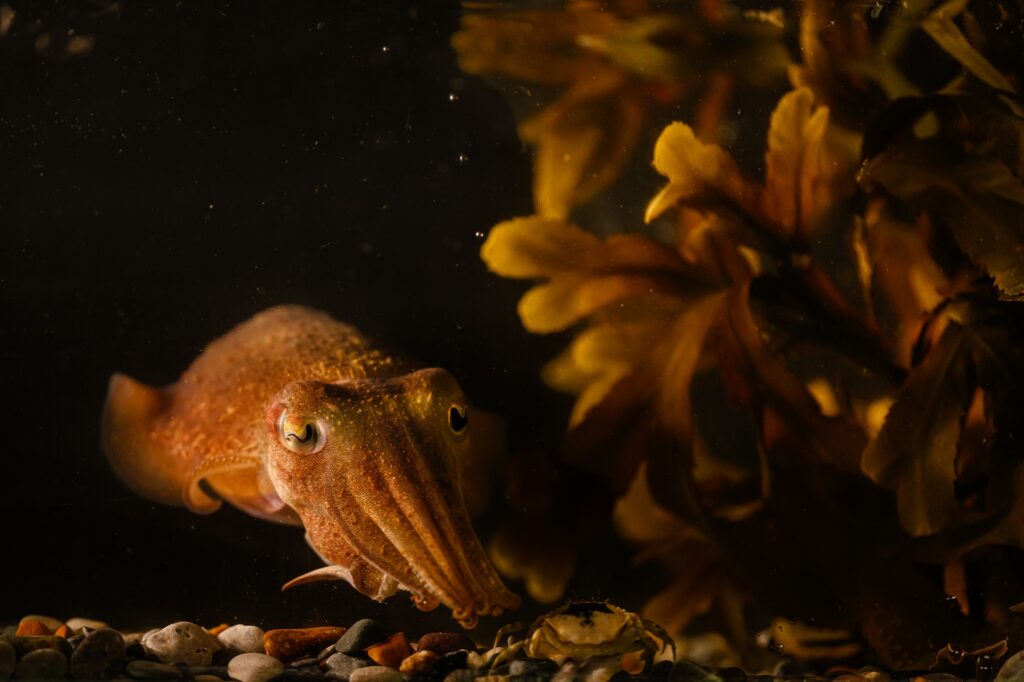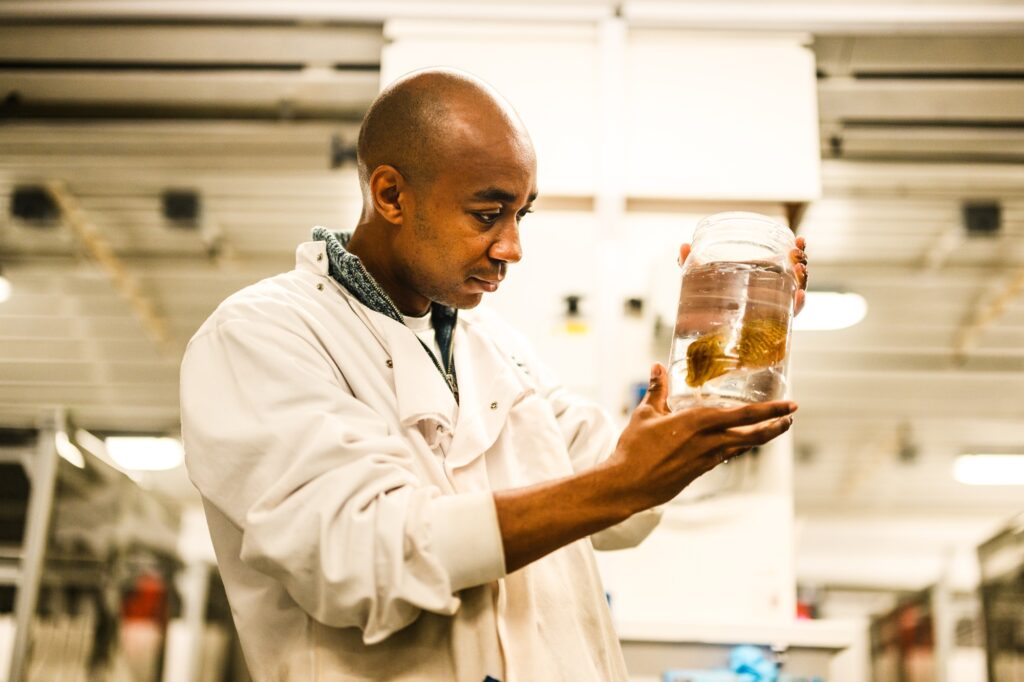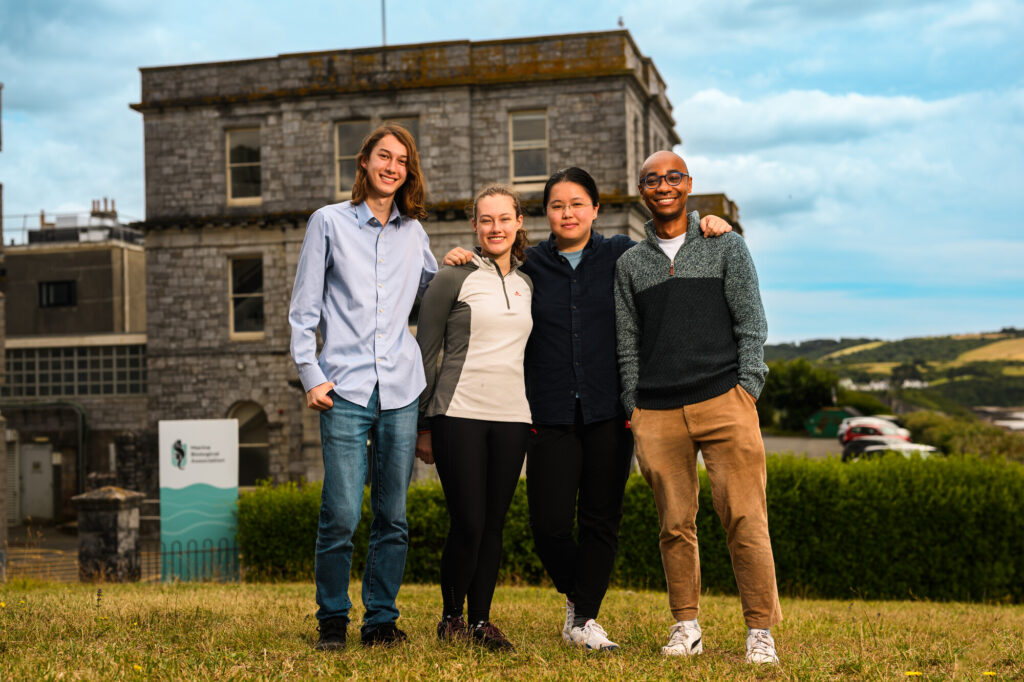Cephalopods like cuttlefish have long fascinated scientists with their remarkable ability to rapidly change their outward appearance. Now researchers are on a mission to understand the inner workings of their minds.
The Marine Biological Association (MBA) and the Comparative Cognition Lab at the University of Cambridge have joined forces in a groundbreaking collaboration aimed at understanding these marine animals.
An international research team are combining their expertise to push the boundaries of marine biology research and redefine cephalopod behaviour.
Cuttlefish are a type of coleoid cephalopod, a group of soft-bodied molluscs which also includes octopus and squid. Even though the last common ancestor of humans and cephalopods lived an estimated 550 million years ago, the coleoid cephalopods display sophisticated feats of flexible behaviour and have evolved extremely large brains for their body size; but whether they represent the world in a similar manner to intelligent vertebrates like crows and chimpanzees is still not clear.

Cuttlefish and their octopus and squid cousins evolved large brains and complex behavioural traits independently from clever vertebrate groups, and therefore provide a unique opportunity to expand our understanding of what intelligence is and how it evolves. Revealing the extent of complex cognition in cephalopods requires carefully controlled laboratory tasks, where researchers can learn the idiosyncrasies of individuals and develop appropriate testing procedures.
The University of Cambridge team are investigating cuttlefish camouflage, behaviour, and cognition through research involving captive-hatched common European cuttlefish (Sepia officinalis) at the MBA.
The MBA Research Aquarium has been chosen as the ideal location to study cephalopods, thanks to its impressive state of the art tank facilities, seafront location and access to a unique seawater recirculating system.

Ecology Laboratory and Research Aquarium Manager Alix Harvey said: “We are excited to be part of this innovative project. By combining our expertise and resources with the University of Cambridge, we have unprecedented opportunities to explore the complexities of cephalopod behaviour and its implications for marine ecosystems.”
PhD student Willa Lane is conducting the research alongside Post-doctoral Research Associate Dr Victor Ajuwon and a support team from the University of Cambridge led by Professor Nicola Clayton FRS.
Peiru Chen, an academic visitor in the Comparative Cognition Lab, joined for the full 2024 research season. Undergraduates Maham Chaudhry and Phoebe Cowhig, from the University of Cambridge, and David Hayes, from the University of Oxford, also assisted the research conducted at the MBA.
Willa said: “Our lab’s work on cephalopods has helped change the idea of what it means to be smart, resulting in conversations about what it means to be sentient, revised animal welfare policy, increased focus on marine conversation, and renewed discussion about the origins and evolution of cephalopods.”
Dr Victor Ajuwon said:
“Through our collaboration with the MBA and other colleagues we are developing cutting edge tools to study the behaviour and decision-making processes of the cuttlefish in fascinating detail. We hope our findings offer somewhat of a window into the mind’s eye of these extraordinary animals, with implications for our understanding of the nature and evolution of complex cognition.

Head of lab and principal investigator, Professor Nicky Clayton, FRS said:
“The partnership represents a significant step forward in understanding these fascinating creatures and their role in the oceanic environment. Through innovative research initiatives and collaborative efforts, the MBA and the University of Cambridge are poised to make significant contributions to the field of marine biology and deepen our understanding of cephalopod behaviour.”
The project, which started in Summer 2024 is ongoing with plans for researchers to return to the MBA in 2025 and 2026.
The research has been made possible thanks to support from the Psychology Department and St John’s College at the University of Cambridge, the GC Grindley Fund, Gates Cambridge scholarship, and the Leverhulme Trust.